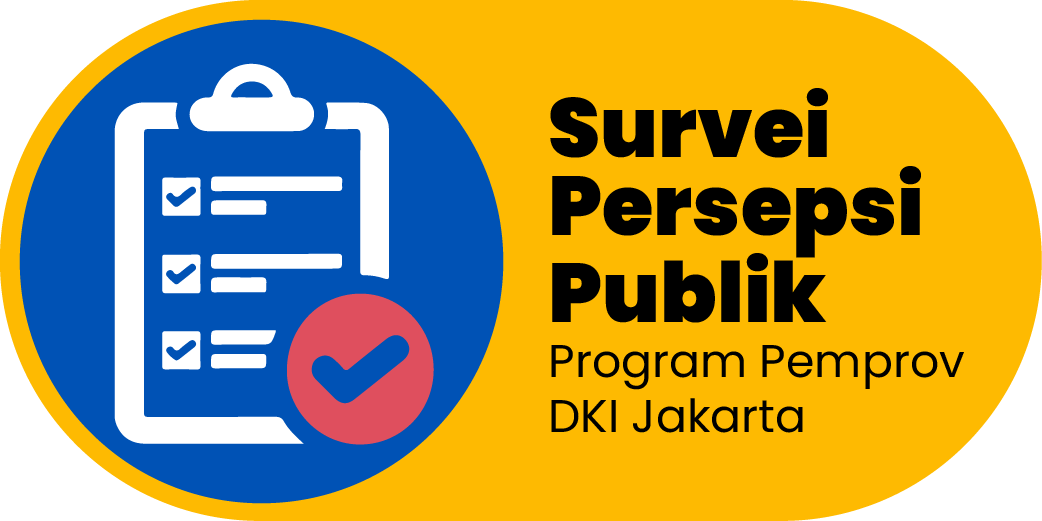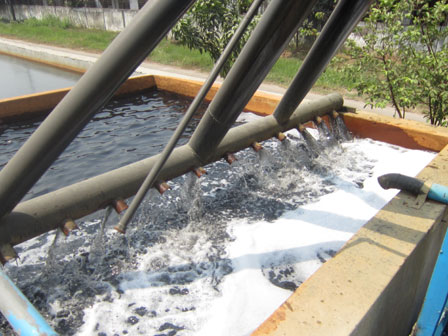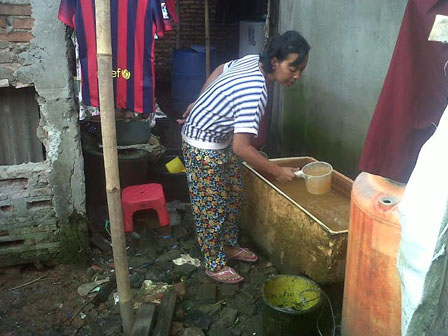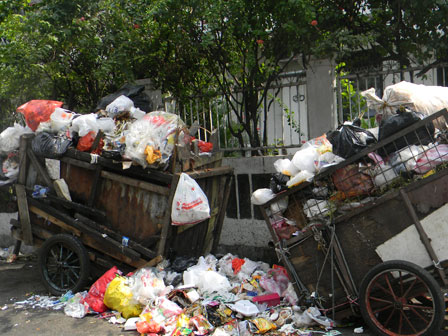Groundwater in 3 Sub-Districts in West Jakarta Contaminated
Reported by Hendi Kusuma | Translated by Nugroho Adibrata
Industrial wastes and residents’ bad habit of throwing trashes into the rivers are worsening groundwater quality in West Jakarta. As a matter of fact, based on the latest data, the quality of groundwater in three sub-districts in the municipality keeps deteriorating and unfit for consumption. Those sub-districts are Kalideres, Cengkareng, and Tambora.
Groundwater is contaminated due to lack of sense of responsibility from the residents as well as industry owners who are littering trashes and wastes haphazardly
Because groundwater quality is decreasing, the citizens cannot utilize it for daily needs. Due to worry the contaminated water would cause health problem, they had to buy clean water from mobile water sellers.
“Groundwater is contaminated due to lack of sense of responsibility from the residents as well as industry owners who are littering trashes and wastes haphazardly,” stated Head of Supervision Section for West Jakarta Environment Management Office (KPLH), Zaki Reza, Tuesday (22/4).
Kampung Sepatan Residents Get Clean Water AidAccording to Reza, groundwater in those sub-districts is contaminated with B3 hazardous wastes or household wastes. There are three factors that cause it, namely factory’s wastes disposed into the river or left absorbed into the ground, domestic industries that have not had waste treatment thus its owners disposed the wastes into the river, and bad habit of the people who are reluctant to build septic tanks.
To prevent groundwater quality from getting worse, Jakarta Provincial Government has done various efforts. One of those efforts is by issuing Governor Regulation No. 69/2013 on Discharge Standards for Health and Business.
“The regulation has set the rules on size limit or waste level that can be tolerated,” he told.
In the regulation, there are 17 waste-producing industries that have been set not to contaminate the environment and urged to provide waste plant, like in Setia Budi, South Jakarta. Those industries are metal coating, leather tanning, textile, pharmaceutical, fish processing, food, milk and dairy foods, soft drinks, syrup, vegetable oil, soap, margarine, detergents, cars, electronics, batteries, lead-acid battery, printing, and cosmetics.
“If the recommendation ignored, we will summon and fine those industries. The amount of fine depends on the Jakarta Provincial Government’s decision. We only try to do mediation,” he uttered.



